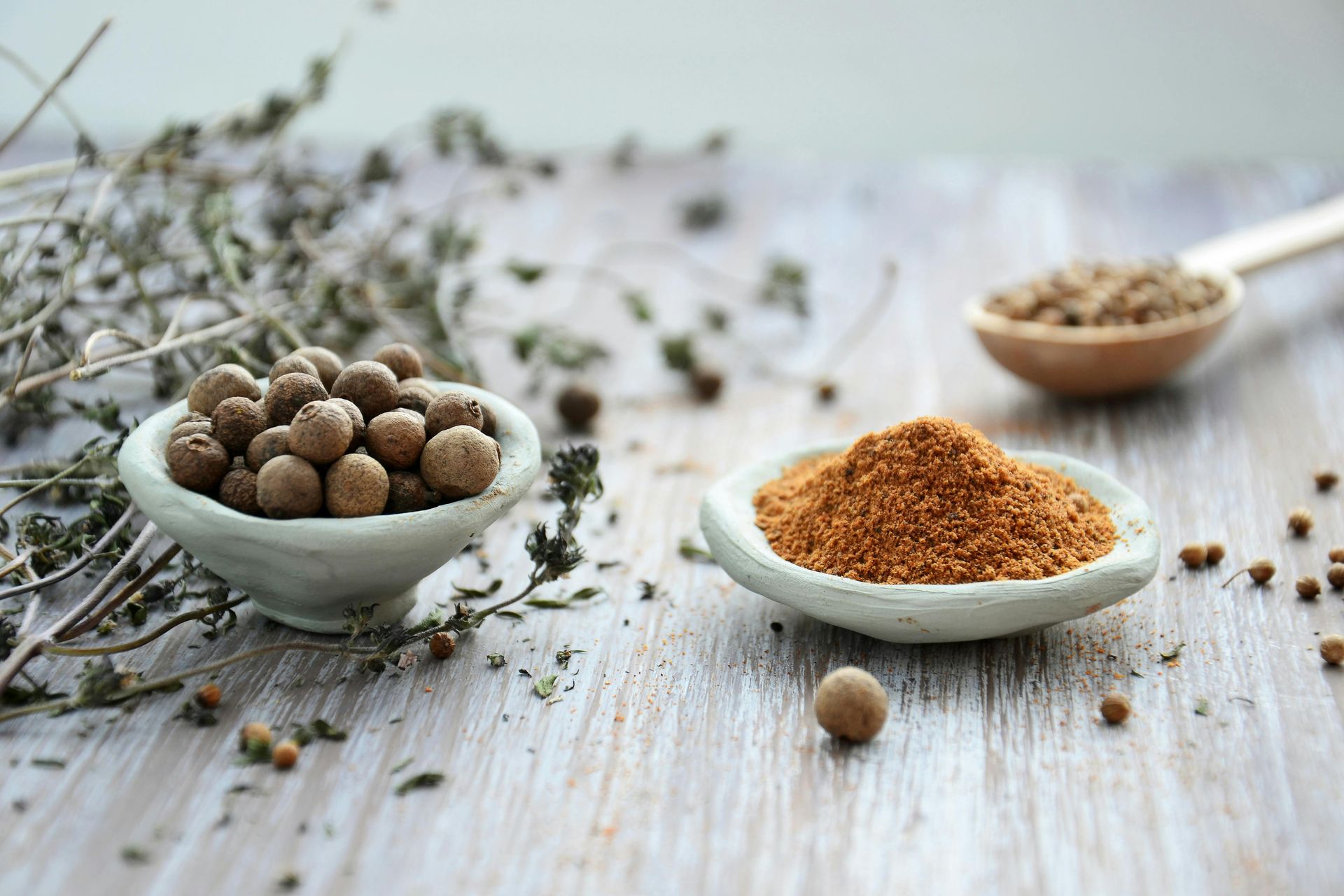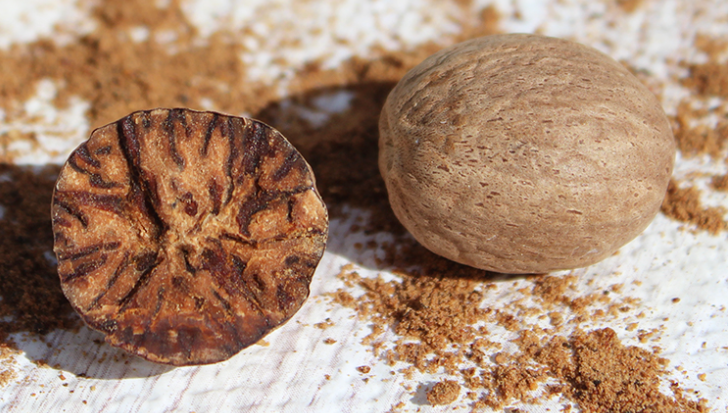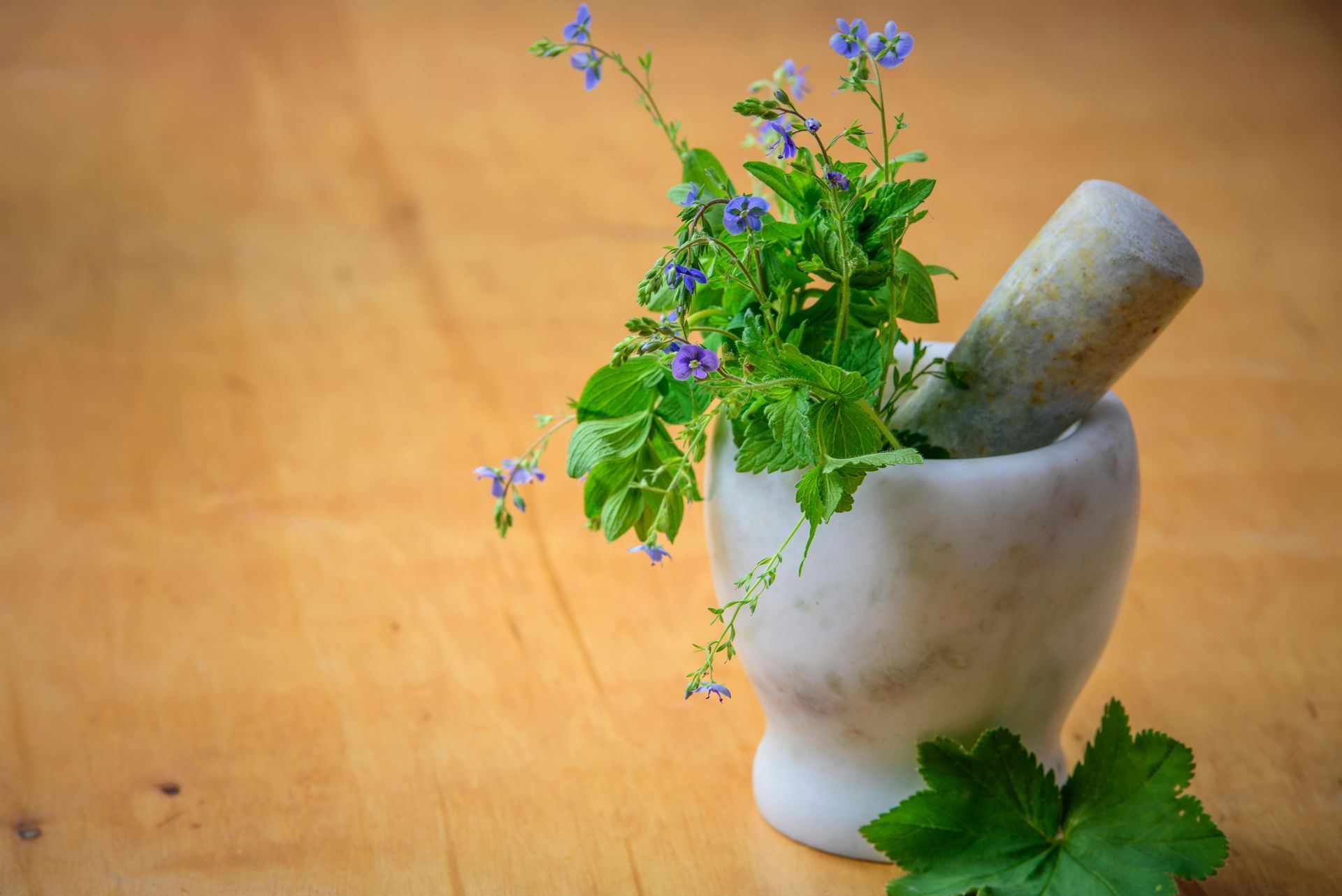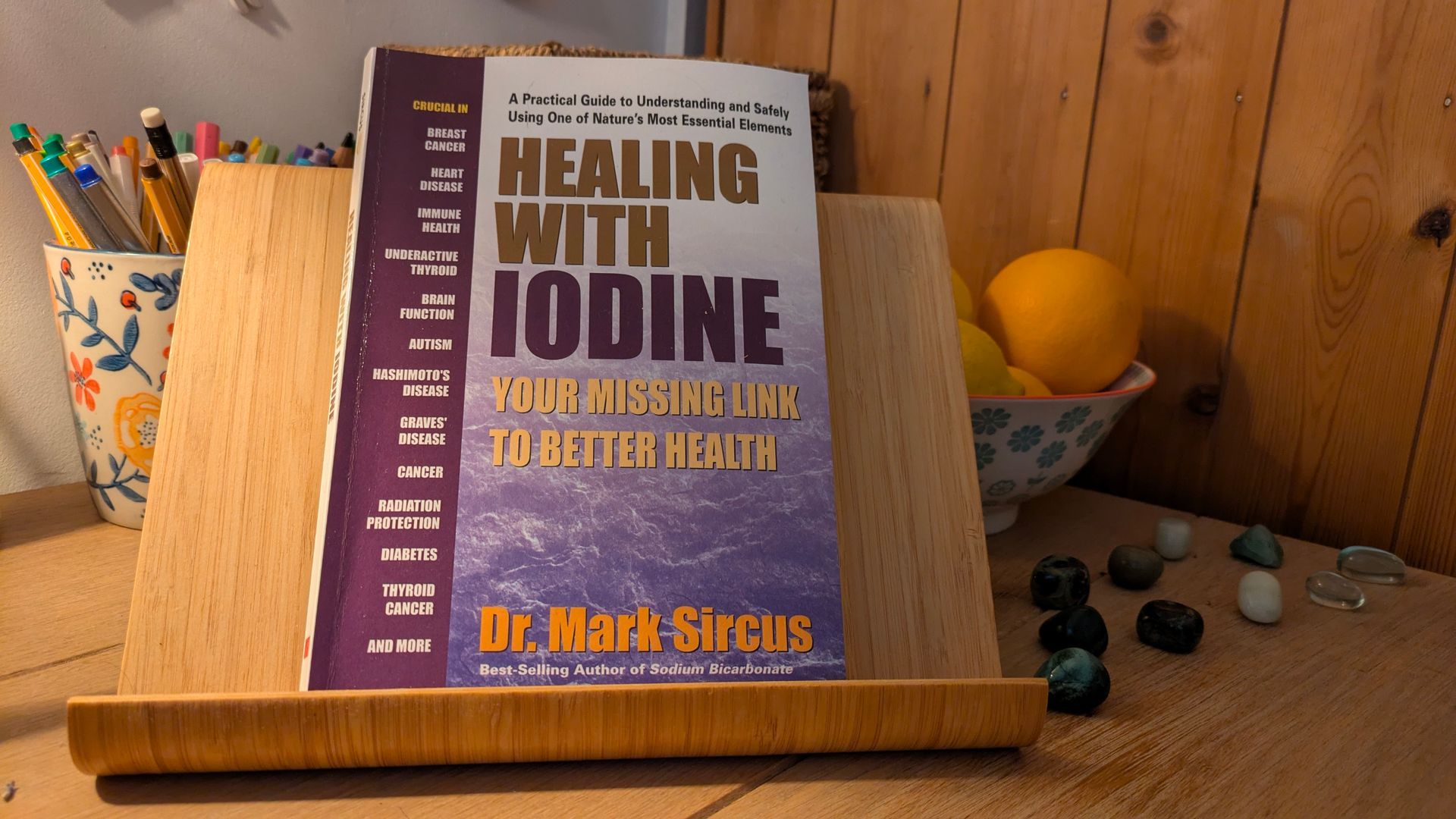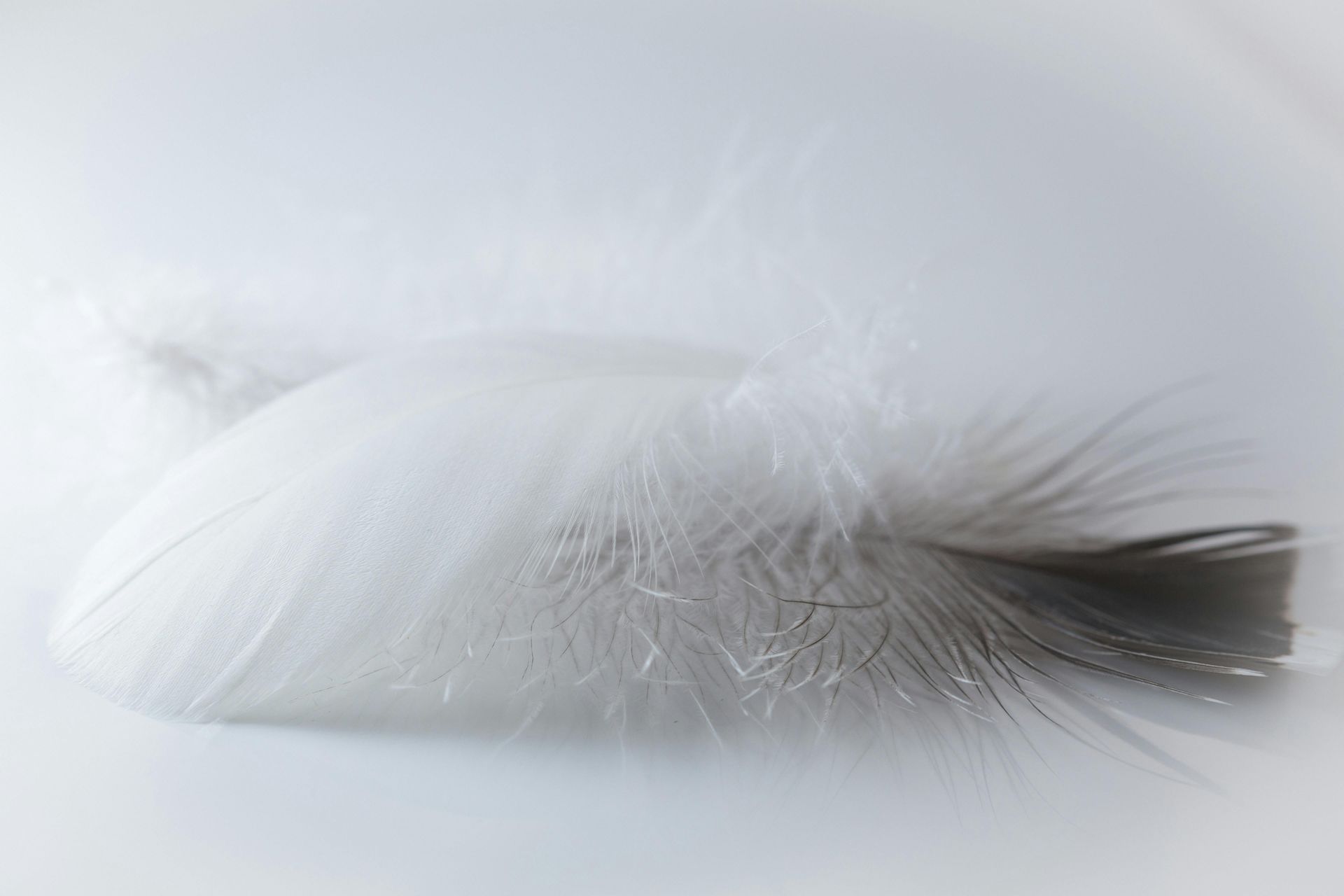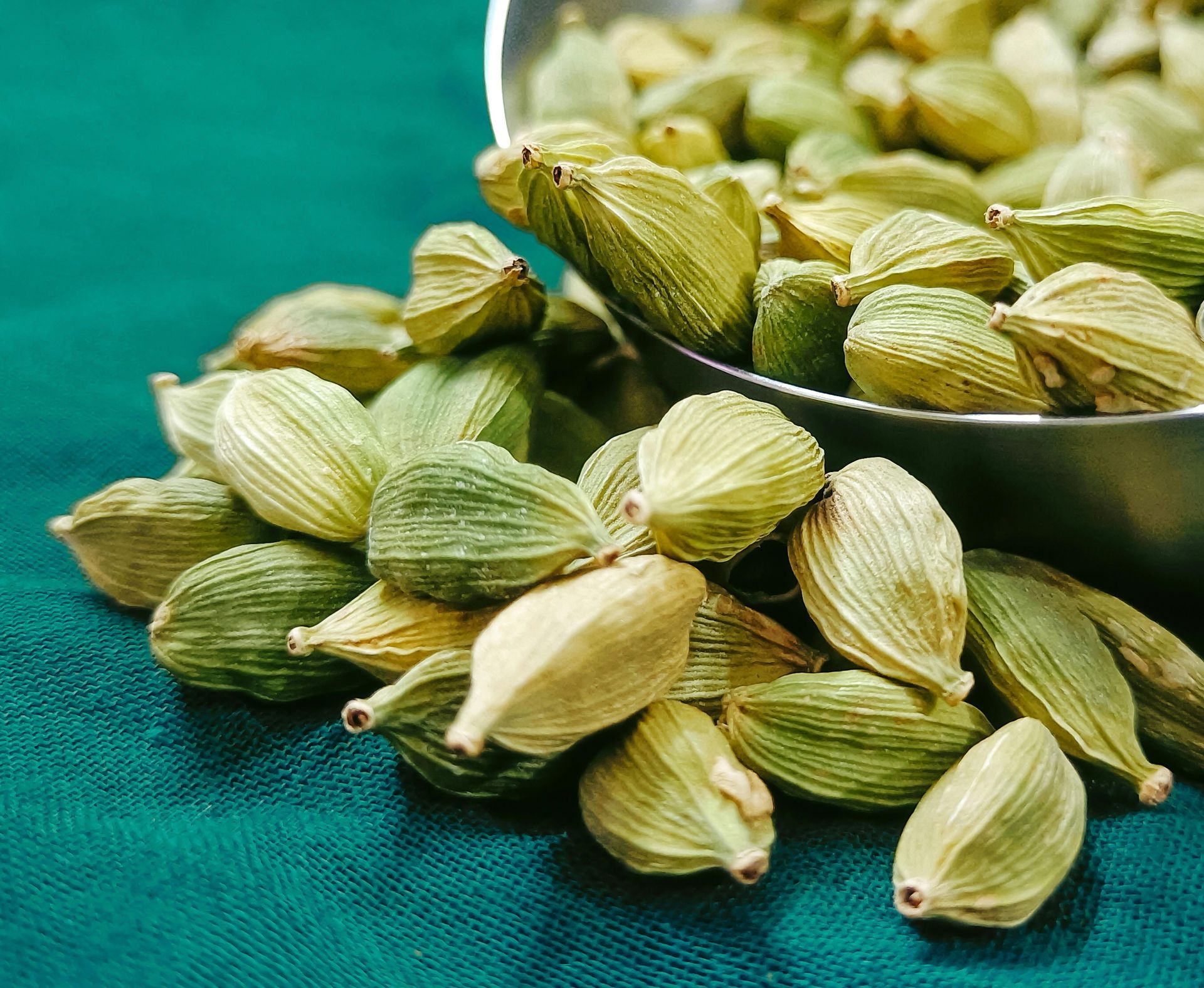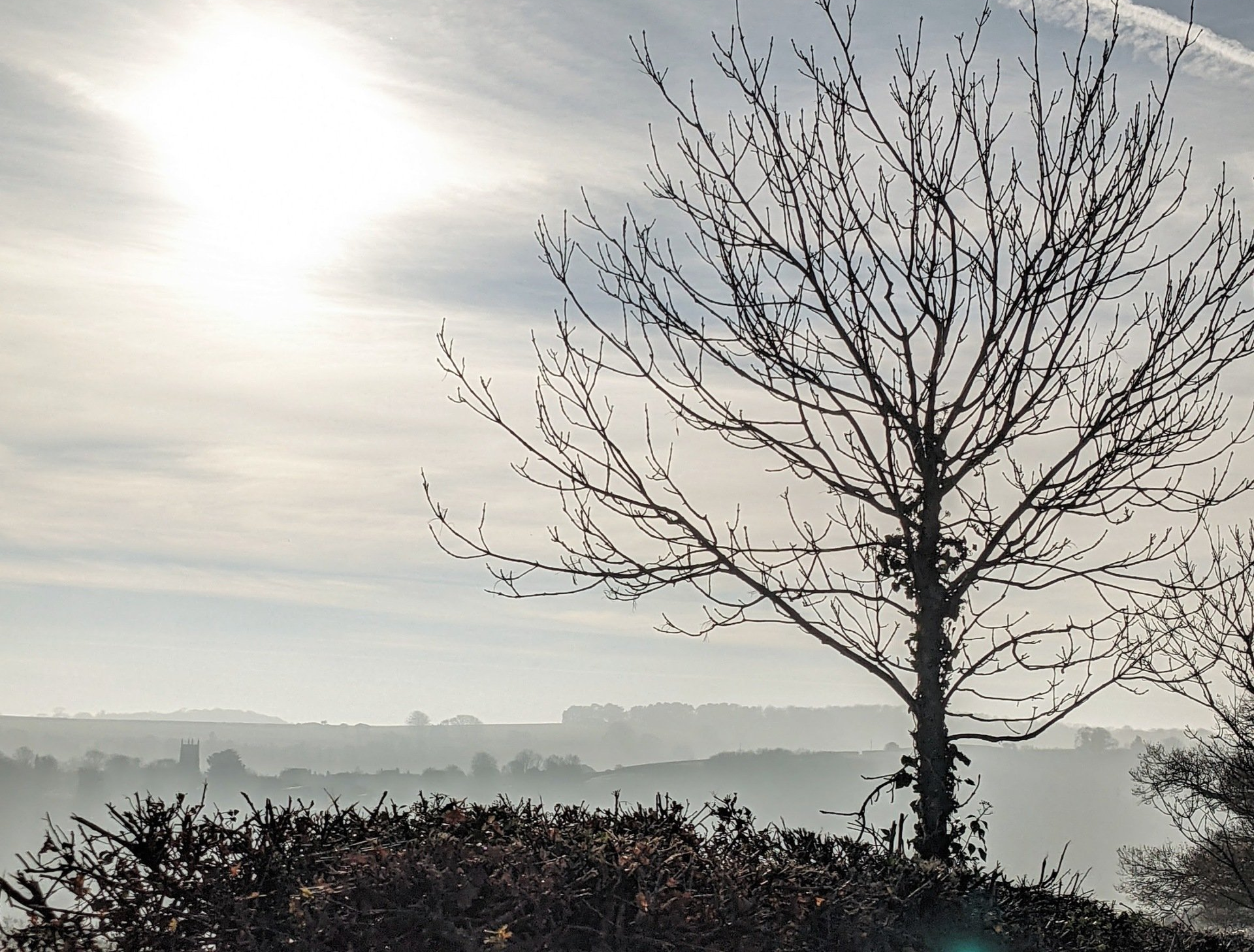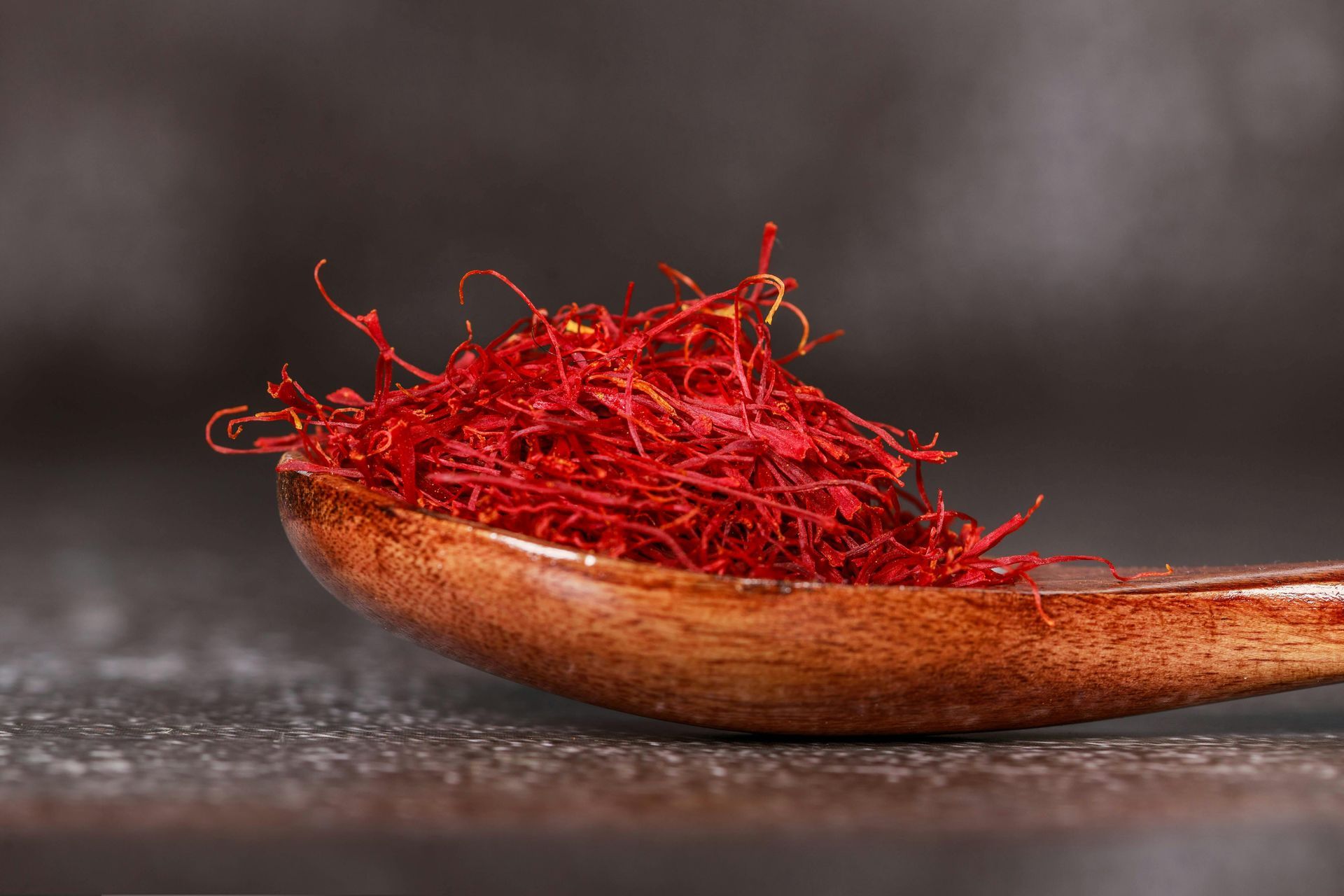A Healing Spice (Nutmeg)
Nutmeg packs a punch with many nutritional, healing and culinary benefits
A Healing Spice Guide
Nutmeg is the eighth spice to feature in my new Healing Spice Guide.
Nutmeg is a large seed which grows inside the fruit of a tropical evergreen tree of the Myristicaceae family called Myristica Fragrans. The tree is native to the Moluccas or Spice Islands of Indonesia where it is mainly cultivated as well as in the West Indies. The fleshy arils surrounding the Nutmeg seed are known as the spice Mace.
The fruits of the Nutmeg tree grow into pendulous
drupes
which look similar to an Apricot. When fully mature, the fruit splits in two, exposing a bright red-colored aril (Mace) which surrounds a single shiny brown seed, the Nutmeg. The pulp of the fruit is eaten locally in the form of a refreshingly fragrant juice.
The harvested Nutmegs are dried naturally in the Sun and are turned twice daily over a period of six to eight weeks. As the Nutmeg shrinks away from its hard coating, the kernels rattle in their shells when shaken. The shell is then broken with a wooden truncheon and the Nutmegs are picked out. Dried Nutmegs are grayish brown in colour in an oval shape with furrowed surfaces.
Nutmeg has been highly valued over the centuries for its warm nutty flavour and subtle earthy aroma. It has been used to enhance many culinary dishes, especially for baking, and it is also used in fragrances. Nutmeg contains benefitical medicinal properties and continues to be used in various health remedies.
I hope you enjoy discovering the cleansing and healing benefits of Nutmeg - a wonderful addition to culinary dishes and healing remedies for your general good health, nourishment and wellbeing.
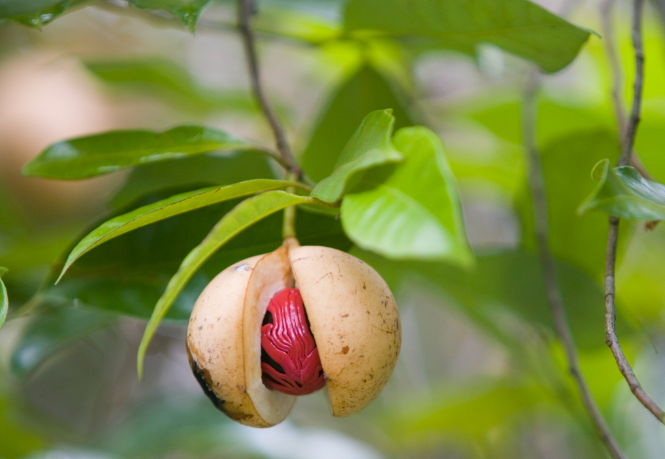
Folklore
Nutmeg has a long and fascinating history with many cultural and symbolic meanings collected from around the world. Nutmeg features in literature, folklore and many different cultures, highlighting its deep-rooted significance.
Folklore often attributes magical properties to this rare and treasured spice. It was used to ward off evil and ensure safety and success. Travelling merchants were particularly fond of Nutmeg which they carried to protect their good fortune.
All forms of Nutmeg were considered useful for money spells where the oil was used as a common ingredient in what were known as Money Oils, while powdered Nutmeg was carried in sachets to be used as a sprinkling powder.
As Nutmeg was native to such a small geographic area, many lives were lost in obtaining it, cultivating it and keeping others from getting a hold of it. The Dutch tortured and killed the native people of Indonesia and did their utmost to keep the English and French from taking it out of the country. This was done by dipping the Nutmegs in lime to prevent them from sprouting.
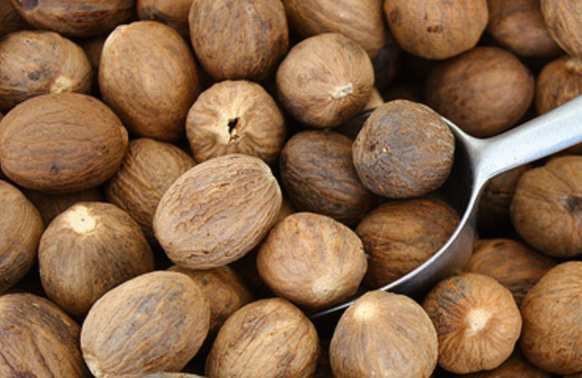
Nutrition
Nutmeg provides a small amount of vitamin A, folate, choline and vitamin C with small amounts of calcium phosphorus, magnesium and potassium with smaller amounts of sodium and manganese.
When used correctly, Nutmeg has been praised for its anti-bacterial, anti-diabetic, pain-relieving, liver-protecting and cancer-preventative properties. Nutmeg also has anti-phenolic compounds and plant pigments which have antioxidant and anti-inflammatory effects known to reduce inflammation and protect the body from cell damage.
Nutmeg is a hallucinogen because of a compound known as myristicin. You would have to consume about 10 grams (two or more teaspoons) to feel any effect, at which point you may put yourself at risk of Nutmeg poisoning which is not lethal but not pleasant, so always use the allocated amount to avoid triggering symptoms of toxicity.
Remedies
Nutmeg contains essential oils which includes
pinene,
camphene
and
dipentene. The oil is used to scent soaps and perfumes. An ointment of Nutmeg butter is used as a counter-irritant in the treatment of rheumatism.
One old remedy for rheumatism involved boiling Nutmegs and cooling the resulting liquid. As natural fats rose to the surface and cooled, it formed a solid layer. This was skimmed off and used as a topical balm. Nutmeg is a warming spice which is why it was used to stimulate circulation and relieve pain caused by cold weather.
Drinking warm milk flavoured with honey and dusted with Nutmeg is be a pleasant way to warm up the body and help you to relax before settling down to some meditative, creative or journeying work.
When consumed in large amounts (see above), Nutmeg can have psychoactive effects, making it a deliriant and hallucinogen. Nutmeg poisoning is rarely fatal but can cause convulsions, palpitations, and pain so be careful with the amounts used.
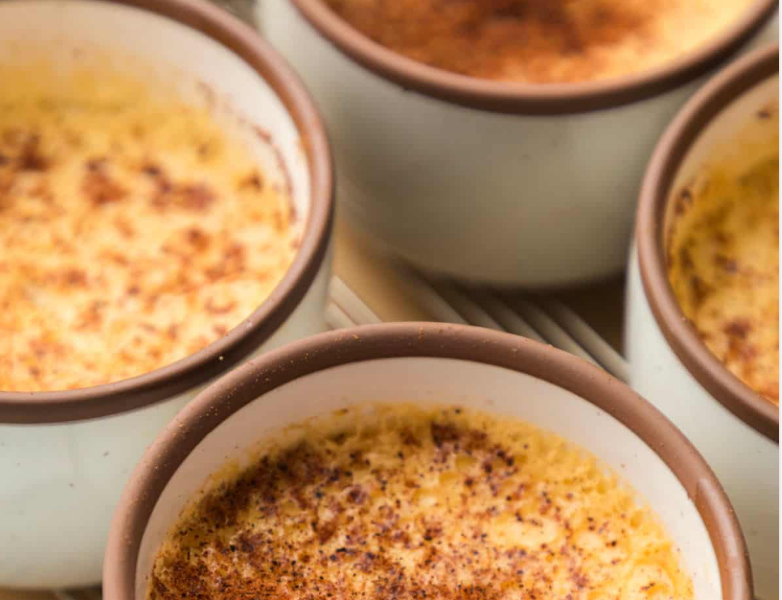
Recipes
Baked Egg Custard with Nutmeg
A classic dessert, lightly spiced with Nutmeg is made with natural ingredients and is delicious served with fresh or stewed fruit.
- 300ml (½ pint) x Organic or Raw Whole Milk
- 2 x medium Eggs
- 25g (1oz) x Caster Sugar
- Few drops of Vanilla Extract
- Freshly grated Nutmeg, to taste
- Preheat oven to 170°C/150°C fan/gas mark 3.
- Add milk to a saucepan and heat gently until hot but do not boil. Remove from heat.
- Lightly whisk together the eggs, sugar and vanilla extract in a heatproof bowl.
- Pour on the hot milk, stirring continuously.
- Strain mixture through a sieve into a 600ml (1 pint) ovenproof dish or individual ramekin dishes.
- Sprinkle a dusting of Nutmeg on top.
- Bake in oven for about 45 minutes or until set.
- Serve hot, cold or chilled with canned, stewed or fresh fruit.
- If serving hot, let the baked pudding stand for 20 minutes or so before serving.
I hope you enjoy this ongoing series of posts about the healing and health benefits of spices that make a healthy and flavoursome addition to many a warming recipe or herbal tea.
Thank you for joining me on this exciting journey of discovery and I look forward to seeing you again soon.
Sue Cartwright
Spiral Leaf
Thank you for sharing!
for you, for me and for Mother Nature
Latest Posts
All Posts

